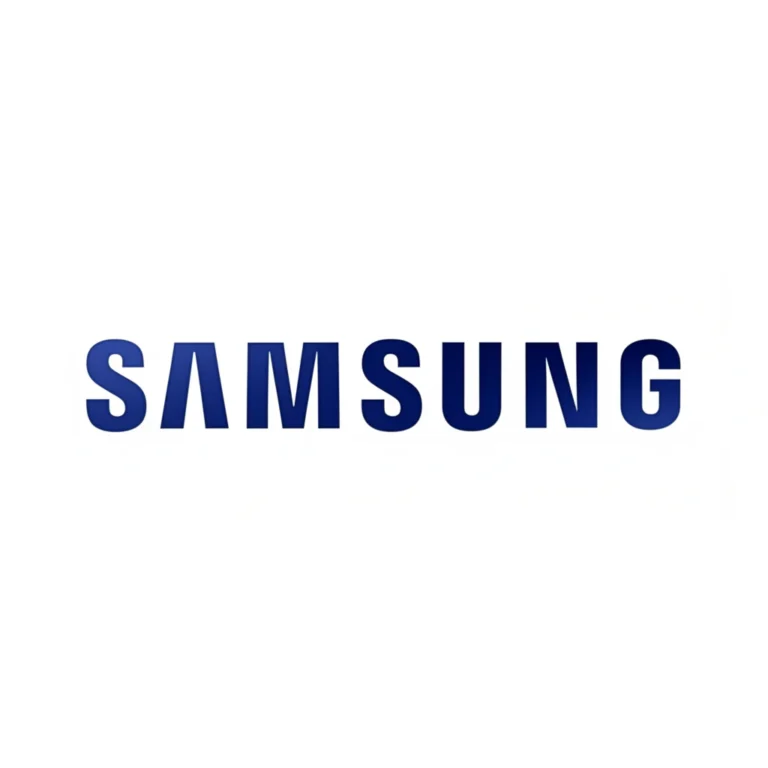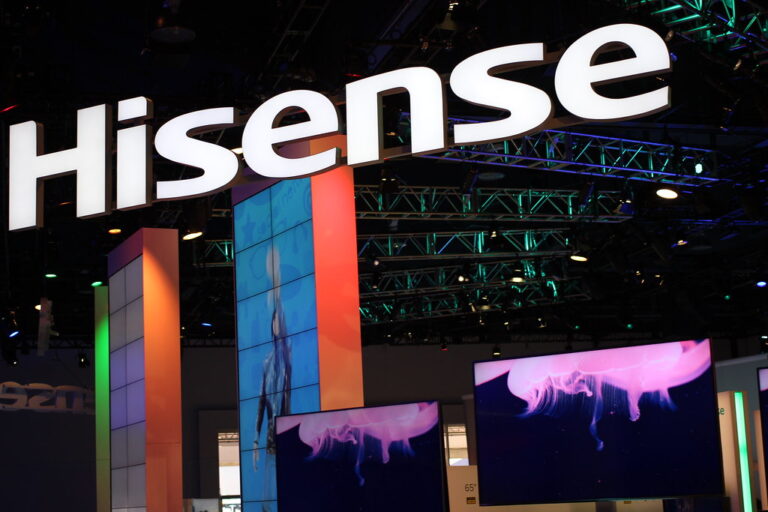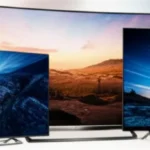Support our educational content for free when you purchase through links on our site. Learn more
LG vs. Sony TVs: Which Reigns Supreme? 👑
Choosing between an LG and a Sony TV can feel like choosing between two equally delicious cakes – both are tempting, but which one truly satisfies your cravings? This isn’t just a simple “better than” comparison; it’s a deep dive into the world of picture quality, smart TV features, and overall value. We recently had a heated debate in the TV Brands™ office, with half the team swearing by LG’s OLED technology and the other half championing Sony’s image processing prowess. The result? This comprehensive guide, designed to help you navigate the complexities and ultimately choose the perfect TV for your needs. We’ll explore everything from OLED versus Mini-LED to webOS versus Google TV, leaving no stone unturned in our quest to crown the ultimate champion. Ready to find out which brand emerges victorious?
Key Takeaways:
- LG excels in OLED technology, offering stunning picture quality with perfect blacks and vibrant colors, especially beneficial for dark room viewing and gamers.
- Sony’s Mini-LED TVs shine in brightly lit rooms, boasting exceptional brightness and local dimming capabilities, and often superior image processing.
- Smart TV preferences are subjective: LG’s webOS is simpler and more intuitive, while Sony’s Google TV offers extensive app integration.
- The “better” brand depends entirely on your individual needs, viewing environment, and budget.
👉 Shop LG TVs on: Amazon | Best Buy | LG Official Website
👉 Shop Sony TVs on: Amazon | Best Buy | Sony Official Website
Table of Contents
LG vs. Sony: A Deep Dive into TV Technology
The Evolution of LG and Sony Televisions: A Historical Perspective
Picture Quality Showdown: LG OLED vs. Sony Mini-LED
Smart TV Features: webOS vs. Google TV
Sound Quality Comparison: Built-in Speakers and Audio Capabilities
Gaming Performance: Input Lag, HDMI 2.1, and HDR Support
Design and Build Quality: Aesthetics and Durability
Pricing and Value: Finding the Sweet Spot
Top LG TVs: A curated selection for various needs and budgets
Top Sony TVs: A curated selection for various needs and budgets
LG and Sony TVs Compared to Other Brands: Samsung, TCL, and More
Choosing the Right TV Size: A Guide for Different Room Sizes
Troubleshooting Common Issues: Fixes for Picture and Sound Problems
Before diving into the LG vs. Sony debate, let’s start with some quick insights. Did you know that LG is a major supplier of OLED panels to other TV manufacturers, including Sony? 🤔 This means that while both brands offer OLED TVs, their processing and features can differ significantly. Also, remember that the “best” TV depends heavily on your individual needs and preferences. Are you a gamer? Do you prioritize picture quality above all else? Or is budget your primary concern? These are crucial questions to ask yourself before making a decision. For more on budget considerations, check out our article on why Hisense TVs are so cheap: Why Is Hisense So Cheap? 10 Secrets You Need to Know (2025) 🤔📺.
LG vs. Sony: A Deep Dive into TV Technology
Choosing between LG and Sony TVs is like choosing between two delicious desserts – both are great, but one might be a better fit for your taste. Let’s break down the key differences:
Picture Quality: OLED vs. Mini-LED
LG is synonymous with OLED technology, known for its perfect blacks, infinite contrast, and vibrant colors. However, Sony has been making strides with its Mini-LED technology, offering impressive brightness and local dimming capabilities, especially beneficial in brightly lit rooms. While OLED generally wins in terms of pure black levels, Mini-LED can be brighter and handle reflections better.
| Feature | LG OLED | Sony Mini-LED |
|---|---|---|
| Black Levels | Perfect | Very Good |
| Brightness | Good | Excellent |
| Contrast | Infinite | Very High |
| HDR Performance | Excellent | Excellent |
| Viewing Angle | Wide | Moderate to Wide |
| Burn-in Risk | Low (but still a possibility) | None |
Smart TV Features: webOS vs. Google TV
LG uses its webOS platform, known for its intuitive interface and ease of use. Sony, on the other hand, utilizes Google TV, offering a vast app library and seamless integration with other Google devices. Both platforms are excellent, but the best choice depends on your existing tech ecosystem and personal preferences. For a deeper dive into smart TV features, check out our Smart TV Reviews.
The Evolution of LG and Sony Televisions: A Historical Perspective
Both LG and Sony have rich histories in the television industry. Sony’s legacy is deeply rooted in innovation, from the Trinitron CRTs to the development of high-resolution displays. LG, meanwhile, has become a leader in OLED technology, pushing the boundaries of picture quality. Understanding their historical trajectories helps appreciate their current strengths and weaknesses. For more on the lifespan of your TV, visit our Television Lifespan page.
Picture Quality Showdown: LG OLED vs. Sony Mini-LED
This is where things get really interesting! We’ve already touched on the differences between OLED and Mini-LED, but let’s delve deeper. LG’s OLEDs offer unparalleled black levels and contrast, creating a truly immersive viewing experience. However, Sony’s Mini-LED TVs, particularly their higher-end models, boast exceptional brightness and local dimming, making them ideal for brightly lit rooms. The “better” technology depends entirely on your viewing environment and priorities. For example, in a dark home theater, an LG OLED might be preferable, while a bright living room might benefit from a Sony Mini-LED.
Smart TV Features: webOS vs. Google TV
The battle of the smart TV platforms! LG’s webOS is known for its simplicity and ease of navigation. It’s clean, intuitive, and generally very user-friendly. Google TV, on the other hand, offers a vast app library and deep integration with the Google ecosystem. If you’re heavily invested in the Google world (Android phones, Chromecasts, etc.), Google TV is a natural fit. If you prefer a simpler, less cluttered experience, webOS might be the better choice. Ultimately, personal preference plays a big role here.
Sound Quality Comparison: Built-in Speakers and Audio Capabilities
Let’s be honest, built-in TV speakers are rarely the highlight of the show. Both LG and Sony offer decent built-in speakers, but neither is going to replace a dedicated sound system. However, both brands support various audio technologies like Dolby Atmos, which can significantly enhance the audio experience when paired with a compatible soundbar or home theater system. Consider your audio needs and whether you plan to invest in external speakers.
Gaming Performance: Input Lag, HDMI 2.1, and HDR Support
For gamers, input lag is a critical factor. Generally, LG OLED TVs have a slight edge in this area, offering lower input lag and better response times. Both brands offer models with HDMI 2.1, supporting features like 4K@120Hz and Variable Refresh Rate (VRR), crucial for smooth, tear-free gaming. However, LG often leads in terms of the number of HDMI 2.1 ports and overall gaming features.
Design and Build Quality: Aesthetics and Durability
Both LG and Sony TVs generally boast sleek designs and high-quality construction. However, specific models may vary in terms of aesthetics and build materials. Consider the overall design language of each brand and choose the one that best complements your home decor. Read user reviews to get a sense of the long-term durability of specific models.
Pricing and Value: Finding the Sweet Spot
Pricing varies significantly across both brands’ product lines. LG often offers more budget-friendly options, especially in the OLED category. Sony tends to position itself at the higher end of the market, particularly with its premium features and technologies. Consider your budget and prioritize the features that matter most to you. Don’t forget to compare specs and features within each price range.
Top LG TVs: A curated selection for various needs and budgets
LG offers a wide range of TVs to suit different budgets and needs. Their OLED TVs are generally considered top-tier in terms of picture quality, while their NanoCell and QNED models offer excellent value for the price. Here are a few examples (remember, specific models and availability change frequently):
- LG C3 OLED: A fantastic all-around OLED TV, offering excellent picture quality and gaming features.
- LG G3 OLED: LG’s flagship OLED, boasting exceptional brightness and color accuracy.
- LG QNED90: A great option for those seeking a high-quality LED TV without breaking the bank.
👉 CHECK PRICE on:
- LG C3 OLED: Amazon | Best Buy | LG Official Website
- LG G3 OLED: Amazon | Best Buy | LG Official Website
- LG QNED90: Amazon | Best Buy | LG Official Website
Top Sony TVs: A curated selection for various needs and budgets
Sony’s lineup is known for its excellent image processing and high-end features. Their OLED TVs are top contenders, and their Mini-LED models offer exceptional brightness and local dimming. Here are a few examples (again, availability changes frequently):
- Sony A95L OLED: Sony’s flagship OLED, known for its stunning picture quality and advanced features.
- Sony X95K: A high-performance Mini-LED TV with excellent brightness and local dimming.
- Sony X80K: A more affordable option that still delivers solid picture quality and features.
👉 CHECK PRICE on:
- Sony A95L OLED: Amazon | Best Buy | Sony Official Website
- Sony X95K: Amazon | Best Buy | Sony Official Website
- Sony X80K: Amazon | Best Buy | Sony Official Website
LG and Sony TVs Compared to Other Brands: Samsung, TCL, and More
While LG and Sony are top contenders, other brands like Samsung and TCL offer compelling alternatives. Samsung is known for its QLED technology and vibrant colors, while TCL provides excellent value for the price. Comparing these brands requires considering individual features, pricing, and your specific needs. For a broader comparison, check out our TV Brand Comparisons section.
Choosing the Right TV Size: A Guide for Different Room Sizes
Choosing the right TV size is crucial for optimal viewing experience. Consider your viewing distance and room size. A larger TV might be ideal for a spacious living room, while a smaller TV might be sufficient for a bedroom. Our Best TVs By Size guide can help you determine the ideal screen size for your setup.
Troubleshooting Common Issues: Fixes for Picture and Sound Problems
Even the best TVs can encounter occasional issues. Common problems include picture quality problems (blurriness, color issues), sound problems (no sound, distorted audio), and connectivity issues. Our troubleshooting guide can help you diagnose and fix these problems. Remember to check your connections, settings, and consider contacting customer support if needed.
So, is LG better than Sony? The answer, as with most things in life, is: it depends. Both brands offer excellent TVs catering to different preferences and budgets. LG often shines with its OLED technology, providing stunning picture quality at competitive prices, particularly for gamers who value low input lag. Sony, on the other hand, excels in image processing and offers a compelling range of Mini-LED TVs, ideal for brightly lit rooms. Their higher-end models often boast superior brightness and local dimming. Ultimately, the best choice depends on your viewing environment, priorities (gaming, movie watching, etc.), and budget. We’ve explored the nuances of each brand, and hopefully, this comprehensive guide has equipped you to make an informed decision. Remember to consider your individual needs and preferences when making your final choice. Don’t hesitate to check out user reviews and compare specific models before purchasing.
👉 Shop LG TVs on: Amazon | Best Buy | LG Official Website
👉 Shop Sony TVs on: Amazon | Best Buy | Sony Official Website
Recommended Reading:
What are the key differences between LG and Sony TVs?
LG often focuses on OLED technology, prioritizing perfect blacks, infinite contrast, and vibrant colors, while Sony offers a wider range of display technologies, including OLED and Mini-LED, with a strong emphasis on image processing and brightness, especially in brightly lit rooms. LG’s webOS is generally considered simpler and more intuitive, while Sony’s Google TV offers extensive app integration.
What are the strengths and weaknesses of each brand’s approach?
LG:
- Strengths: Superior OLED technology, generally lower input lag (better for gaming), user-friendly webOS.
- Weaknesses: OLED can be susceptible to burn-in (though less so with modern models), generally less bright than Sony’s Mini-LED TVs.
Sony:
- Strengths: Excellent image processing, high brightness in Mini-LED models, extensive app library with Google TV.
- Weaknesses: Higher prices for comparable models, potentially higher input lag in some models.
Which brand offers better picture quality, LG or Sony?
This is subjective and depends on your priorities. LG OLEDs generally excel in dark room viewing with perfect blacks and infinite contrast. However, Sony’s high-end Mini-LED TVs offer superior brightness and better handling of reflections in brightly lit rooms. Both brands offer top-tier picture quality, but the “better” one depends on your viewing environment and preferences.
How do LG and Sony compare in terms of smart TV features and operating systems?
LG uses webOS, known for its simplicity and ease of use. Sony uses Google TV, offering a vast app library and seamless integration with other Google devices. The best choice depends on your existing tech ecosystem and personal preferences.
Are LG TVs more durable and reliable than Sony TVs, or vice versa?
Both brands produce high-quality TVs with generally good reliability. However, individual model experiences can vary. It’s advisable to check user reviews and ratings for specific models before purchasing to get a better sense of their long-term durability and reliability.
What about the cost?
Pricing varies greatly across both brands’ product lines. LG often offers more budget-friendly options, especially in the OLED category. Sony tends to position itself at the higher end of the market, particularly with its premium features and technologies. Consider your budget and prioritize the features that matter most to you.
- LG Official Website
- Sony Official Website
- RTINGS Sony TV Reviews
- RTINGS LG TV Reviews
- Sony A95L OLED vs LG G4 OLED Side-by-Side TV Comparison





